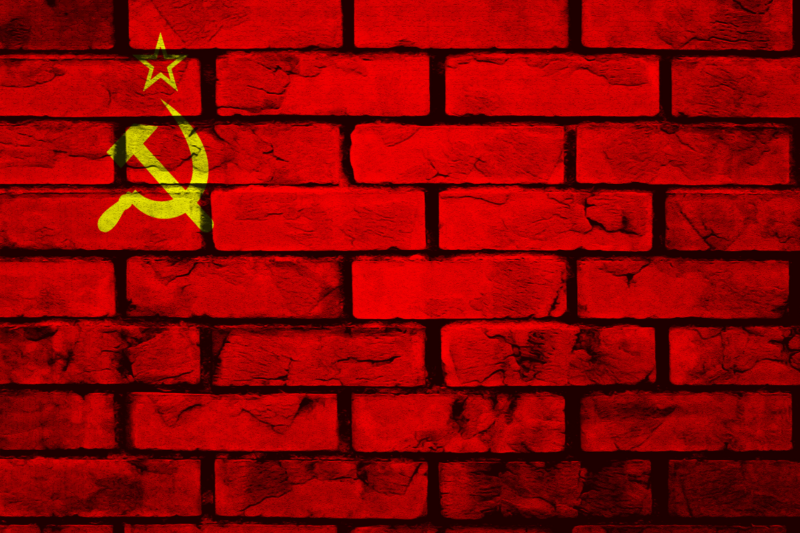

The triple EU: intermediaries to sell in Russia
The European rhetoric has been clear for two years: it is necessary to economically block Russia. That is why trade ties with the country led by Putin were broken. But the reality is that the countries of the European Union skip their own sanctions and sell to Russia through countries like Kyrgyzstan, Georgia or Kazakhstan, making the Russian economy the fastest growing in the G7.
On the second anniversary of Russia’s invasion of Ukraine, it is impossible to predict how much longer this war will last or who will win it. What can already be said is that European pressure measures have not been of much use, if the objective was to suffocate Russia economically. A few weeks ago the International Monetary Fund had to revise its forecasts for the Russian economy. They had estimated that Russian GDP would stagnate in 2023 at 1.1% growth and finally stood at 2.6%, becoming the fastest growing G7 economy. Not only that, the Russian government estimates that in 2024 its growth will accelerate to 3.5%.
How is it possible, if the EU has approved more than a dozen economic and trade sanctions to strangle the economy of its Russian neighbours? Because the reality is that the European positioning is more rhetorical than real. Blocking Russia seriously would imply much more serious damage to the economy of some European countries that are not there to shoot rockets, never better said. European hypocrisy has been highlighted for months by Robin Brooks, former IMF economist. A sufficiently clear example: exports of cars, engines, or vehicle parts from Germany to Kyrgyzstan have increased by 5,500%.
German exports of motor vehicles and parts (blue) to Kyrgyzstan are up 5500% since Russia invaded Ukraine. You don't have to be a rocket scientist to know that all this stuff is heading to Russia. It's not like Kyrgyzstan is suddenly in a massive boom. Germany has to stop this… pic.twitter.com/aVZs7Ji3mO
— Robin Brooks (@robin_j_brooks) November 26, 2023
Could this country neighbouring Russia and with only 6.6 million inhabitants have a sudden interest in German engines? Sure. Definitely. But it is still surprising that this furore for German industry also extends to Armenia, Azerbaijan, Georgia, Turkey, and Kazakhstan. Is it a problem only in Germany? It seems not, because exports from the entire European Union just to Armenia have grown by 430%. We are facing a very clear act of fooling by the European Union: I announce that I am sanctioning Russia, and I am not selling anything directly to it, but I am selling it through other countries.
While Russia has increased commercial ties with China and India, the main recipients of Russian oil. In fact, in this sense the European blockade is once again ridiculous, because Russia’s production of barrels of oil remains stable at 9.5 million barrels per day. Exactly what they made before the sanctions, they have only changed clients.
The Russians see how their economy has been mobilized towards the war effort, increasing spending on weapons production to reach 40% of GDP. It is an effort that also pushes economic growth in the short term, but evidently does not have the same return as the productive economy. However, Russia seems capable of sustaining the attack for as long as it deems necessary.
For its part, the European Union has already been warning its member countries to prepare to mobilize their economies towards a war economy. Recently, Ursula Von der Leyen has announced her willingness to continue presiding over the European Commission and, in an interview on Euronews, she explained that one of her main objectives is to continue increasing defence spending. Now some 350,000 million euros annually are estimated. To measure the volume, it is necessary to understand that it is a figure equivalent to the entire budget of the Spanish government.
The seized money
One of the first major international sanctions was the order to block $300 billion from Russia in accounts outside the country. Now, as the US government finds it increasingly difficult to continue funding the defence of Ukraine, voices are beginning to appear calling for the money seized from the Russians to be used in the war against Russia. This would prevent, they argue, Western economies from continuing to go into debt to finance the conflict. They would take the money for future reparations from Russia in Ukraine, but this manoeuvre creates many problems.
The main one is trust, because central banks should normally stay out of these types of confrontations between countries. Violating the deposit safety rule was already astonishing, using these funds could generate a greater crisis of confidence in the banking system. Because? Because in Western banks there are billions from countries in the Arabian Peninsula, Central Asia and Africa. If these clients felt threatened and withdrew their money, the international banking system would be seriously compromised, as was already seen with the case from Credit Suisse.
The forecasts, therefore, are very uncertain. The only thing that seems clear is that Putin remains determined and that the European Union will continue to cheat itself. Meanwhile, Russians and Ukrainians continue to die every day in the senseless war. Given the need to renew troops, the Ukrainian government is considering mobilizing 500,000 civilians. Therefore, the tragedy will continue while businesses adjust.
Leave a Reply
You must be logged in to post a comment.





Molt bon article, merci
Moltes gràcies pels teus afalagaments, Manel!!!
Penso que Ucraïna no va mesurar el risc que corria quan Russia negociava. Enlloc de bombardejar el Donbass com ho va fer des del 2014 durant 8 anys, hauria d’haver acceptat el resultat del referèndum i deixat anar aquesta part a Russia. Ara no seria en guerra, seria certament una mica reduïda, pero en pau. Una mica com si Espanya deixés anar Catalunya a la seva propia demanda… Ja sé que per a molts aquests arguments els sorprendran, pero son molt raonables i fundats. El Donbass, russofil, fa anys que vol marxar d’Ucraïna i Ucraïna no volia, i util.litzava la violència contra ells.
Ben vista, Alexis aquesta mirada! Certament, de vegades hi ha accions que no es mesuren prou i aquesta n’és una! Seguim a La Plaça.
gràciess
Gràcies a tu Joan per seguir-nos i sobretot per llegir-nos! Seguim a La Plaça!